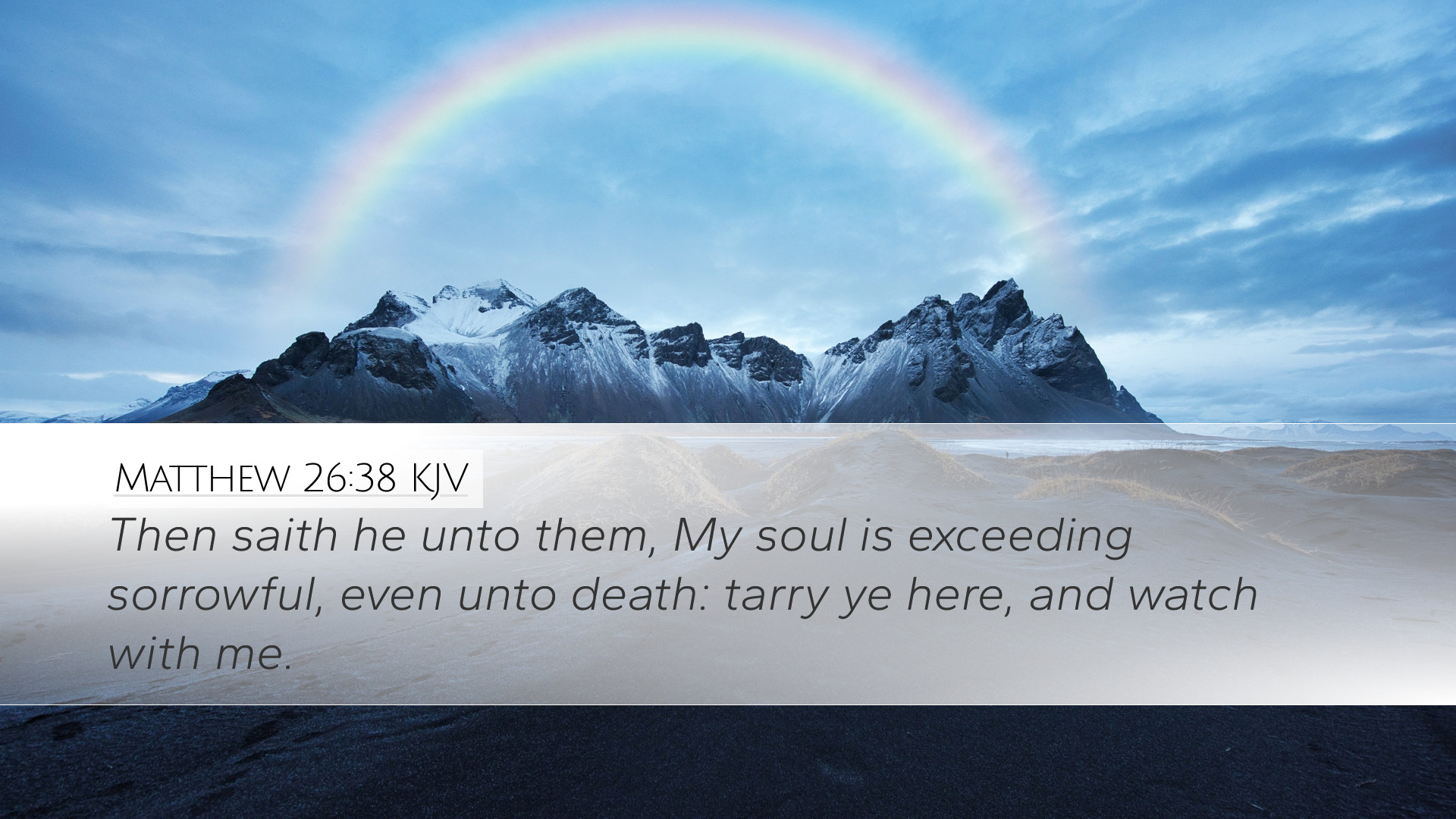Commentary on Matthew 26:38
In Matthew 26:38, Jesus reveals profound depths of His human experience in the face of impending suffering. This verse serves as a poignant moment in the narrative of Christ’s Passion, encapsulating the dual nature of Jesus as both divine and human.
Exegesis of Matthew 26:38
“Then He said to them, ‘My soul is overwhelmed with sorrow to the point of death. Stay here and keep watch with me.’” This verse takes place in the Garden of Gethsemane, shortly before His arrest. Here, Jesus experiences the gravity of His mission as He anticipates the agony of the crucifixion.
The Human Element
Matthew Henry emphasizes the significance of Jesus’ sorrow. He notes that this passage reveals the full weight of human emotion that our Savior bore. In His sorrow, we see that Jesus was not void of feelings; rather, He was deeply troubled by the approaching suffering and separation from the Father.
Spiritual Insight
Adam Clarke provides a robust perspective on the spiritual implications of this sorrow. He notes the necessity of Jesus bearing our sins and the resultant alienation from God that sin creates. This weight of sin deeply grieved Christ's soul, leading Him to express His need for companionship and watchful prayer in His moment of trial.
Human Compassion of Christ
Moreover, Albert Barnes highlights how this verse showcases Christ’s empathy. It reflects the Savior’s understanding of human emotions and pains. He is not detached from our human experience; rather, He shares in our sorrows, inviting His disciples to join Him in watchfulness and prayer.
Significance of 'Watchfulness'
The phrase “Stay here and keep watch with me” is a call not just for physical presence but also for spiritual vigilance. Pastors and theologians often emphasize the importance of communal support during times of distress.
- Community in Suffering: The gathering of the disciples is a reminder of the need for fellowship during trials.
- Watchfulness in Prayer: The call to keep watch is a plea for prayerful vigilance, indicative of the struggle against temptation and despair.
Theological Implications
This moment raises several theological considerations:
- Christ's Dual Nature: It affirms the reality of His humanity alongside His divinity, where He experiences genuine anguish.
- The Role of Prayer: This verse emphasizes the necessity of prayer in moments of distress, underscoring Jesus’ reliance on communion with the Father.
- Empathy in Leadership: Leaders are called to embody both strength and vulnerability, as Christ did.
Application for Modern Believers
The reflections on Matthew 26:38 offer vital lessons for contemporary believers:
- Recognizing One's Emotions: Believers are encouraged to acknowledge their own feelings of sorrow or distress, reflecting on Jesus’ willingness to express His emotions.
- The Importance of Prayer: Just as Jesus sought prayerful support, so too should believers seek community and prayer in their times of trouble.
- Support for Others: The church community is called to be vigilant and supportive, mirroring Jesus’ invitation to His disciples.
Conclusion
This commentary on Matthew 26:38 brings forth the richness of Christ’s humanity and the depth of His suffering. The emotional weight He bears serves as a reminder of His profound love and sacrifice for humanity. As pastors, students, and theologians reflect on this verse, may they find encouragement to lean into prayer, support one another, and embrace the fullness of the human experience as they follow in Christ's footsteps.


